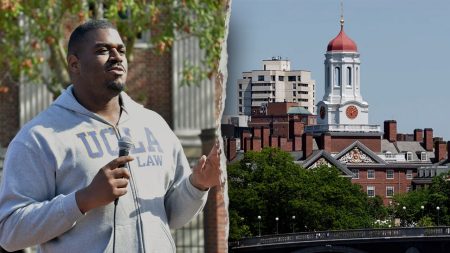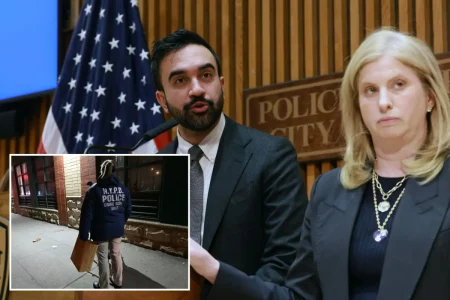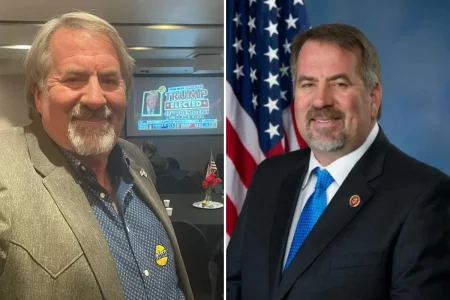The incoming president found himself in a precarious position, navigating the turbulent waters of a looming government shutdown. While publicly expressing a desire to avoid the detrimental consequences of such a shutdown, his actions appeared to contradict this stated goal. He actively undermined a bipartisan agreement that had been painstakingly crafted to avert the crisis, leaving many to question his true intentions and his willingness to accept responsibility for the ensuing fallout. This seemingly contradictory stance – decrying the potential shutdown while simultaneously sabotaging the very mechanism designed to prevent it – placed him at the center of a political maelstrom, drawing criticism from across the political spectrum and raising concerns about his leadership style and priorities.
The bipartisan deal, a product of weeks of intense negotiations and compromise, represented a fragile balance of competing interests. It addressed key concerns from both sides of the aisle, offering concessions and compromises that, while perhaps not fully satisfying to any single party, represented a workable solution to the immediate threat of a government shutdown. The agreement had garnered cautious optimism from lawmakers and the public alike, offering a glimmer of hope that political gridlock could be overcome in the face of a pressing national concern. The president-elect’s subsequent rejection of this carefully constructed compromise not only dashed these hopes but also injected a new level of uncertainty and instability into the already tense political climate.
The president-elect’s rationale for rejecting the bipartisan deal revolved around a specific provision that he deemed unacceptable. While the details of this objectionable provision remain somewhat obscure, the president-elect argued that it represented a betrayal of his campaign promises and a concession to special interests. He framed his opposition as a principled stand against political maneuvering and a defense of the interests of the American people. However, critics countered that his intransigence was driven more by political posturing and a desire to appease a specific segment of his base than by genuine concern for the well-being of the nation. They argued that his actions risked plunging the government into chaos for the sake of a relatively minor point, jeopardizing essential services and undermining public trust in the political process.
The fallout from the president-elect’s decision was immediate and widespread. Lawmakers from both parties expressed dismay and frustration, accusing him of playing political games with the fate of the nation. The public, already weary of political bickering and dysfunction, reacted with a mixture of anger and resignation. The looming shutdown threatened to disrupt a wide range of government services, from national parks to essential social programs, impacting millions of Americans and further eroding confidence in the government’s ability to address critical issues. The president-elect’s attempt to distance himself from the impending crisis, blaming others for the impasse, only served to amplify the criticism directed at him.
As the deadline for a government shutdown drew nearer, the political pressure on the president-elect intensified. Faced with mounting criticism and the potential for significant economic and social disruption, he engaged in a series of last-minute negotiations, seeking a path to avert the impending crisis. However, these efforts were hampered by the eroded trust and heightened tensions resulting from his earlier actions. The president-elect’s insistence on specific concessions, coupled with his unwillingness to compromise on key issues, made reaching a new agreement increasingly difficult. The looming shutdown cast a long shadow over the transition of power, raising serious questions about the president-elect’s ability to govern effectively and unite a deeply divided nation.
The eventual outcome of this political standoff remains uncertain. Whether the president-elect will ultimately accept responsibility for the consequences of a potential shutdown or continue to deflect blame remains to be seen. The crisis serves as a stark reminder of the fragility of the political process and the dangers of prioritizing partisan politics over the well-being of the nation. The president-elect’s actions, while ostensibly driven by a desire to fulfill campaign promises, have inadvertently created a crisis that threatens to undermine his presidency before it has even begun. The looming shutdown underscores the critical need for leadership, compromise, and a commitment to finding common ground in the face of complex challenges. It remains to be seen whether the president-elect can rise to the occasion and navigate this crisis effectively, or whether his actions will further exacerbate the divisions that plague the nation.










